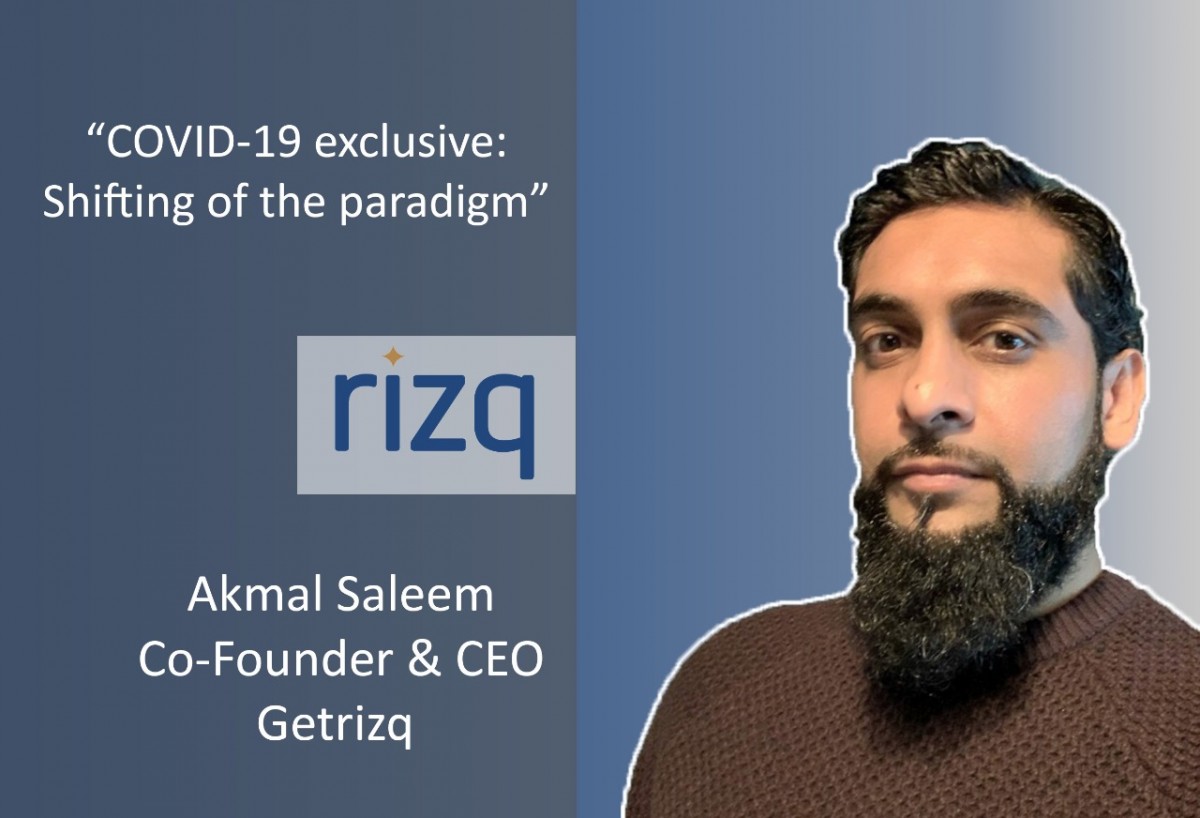“The incumbents will of course pull through, but will become even more risk-averse. They may innovate slightly to accept life post-COVID, but not as much as FinTechs”, expressed Akmal Saleem, Co-Founder and CEO, Getrizq – UK, while discussing the landscape of financial sector and digital banking during an exclusive Q&A session with Daily NewsPK under the context of COVID-19 outbreak.
1. How do you think the financial industry will change post COVID-19?
As with any economic downturn, and then resurgence – there will be many short-term losers, but also long-term winners. Established digital-first FinTechs have an advantage, as they have the edge in terms of maintaining a well-oiled machine remotely, but they also have the funds to sustain themselves through the toughest of times (and also to pivot accordingly at will). The incumbents will of course pull through, but will become even more risk-averse. They may innovate slightly to accept life post-COVID, but not as much as FinTechs.
For the mid-stage startups, life will get tricky. Valuations will be slashed, business models will be scrutinised, and VC funds will be harder to come by. That said, some of the other industries will experience that 10-fold. And VC’s still have targets to hit.
For digital FinTechs at the very beginning of their journey, life should be between fine and good. Smaller raises will still happen, and the economy will start getting back to its feet when the time for larger VC rounds comes about. Arriving into the market, as the market begins a new economic cycle, seemed to work out well for companies like Uber, Dropbox, Slack, and Square (to name just a few) in 2008.
2. What measures have you taken to ensure lower health risks for your employees?
At Rizq, all Founders and employees have been working from home since mid-March, and we have all been following government advice carefully.
3. How are you helping partners and customers cope with this crisis?
Rizq is launching in the summer, so no customers as yet – however, we have been partnering with retailers and charities, amongst other businesses – and we aim to assist society in ‘coming back to the high-street’ through various innovative ways.
4. Do you believe this crisis is offering opportunities for digital business such as yourself and what steps have been taken to make sure you are on top of everything?
Absolutely. As mentioned, any crisis can bring opportunity. For businesses that have the right infrastructure, value proposition (bear in mind, many can pivot accordingly), as well as impeccable customer relationships and trust, growth chances in the long-term are high.
We are paying attention to signs of how consumer behaviours may change, but also workspace behaviours and environment. For example, keeping in mind that government restrictions may soon ease, we are currently picking a new office space. Instead of choosing a space to just fit our team, we will choose a space that lets the team fit in whilst keeping a distance, and we will ventilate the office accordingly.
5. Do you think future is completely digital or human touch will remain necessary for the masses?
I think many people will agree with me, in stating that this crisis emphasises the point that human contact is a huge part of human nature as a whole. But the circumstances or context in which we need it, is a completely separate story. People want to, and will focus on, spending quality time with friends and family – yet I doubt many people have been missing the experience in their nearest bank branch. Technology, automation, AI, machine learning, and such, will enable things that do not deserve or need human contact to be automated – so humans can spend more time on the things that matter. I think this is something we are really sensitive to now, and will realise even more as restrictions start to ease off.











